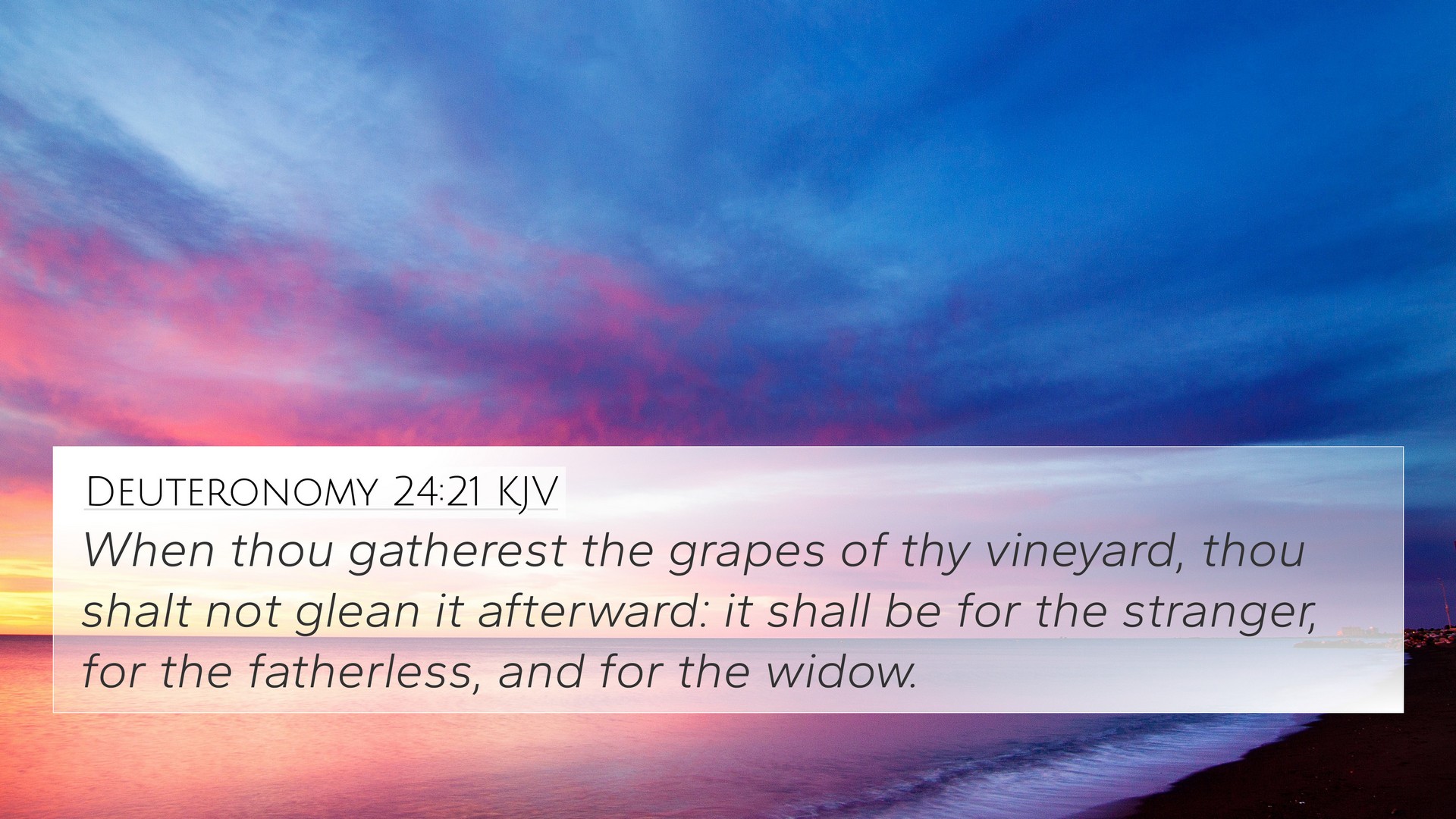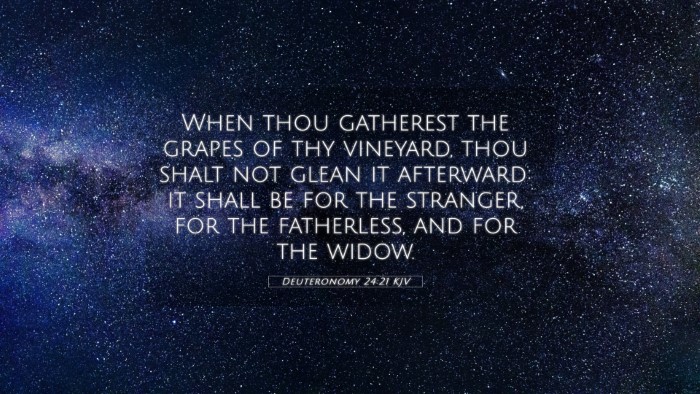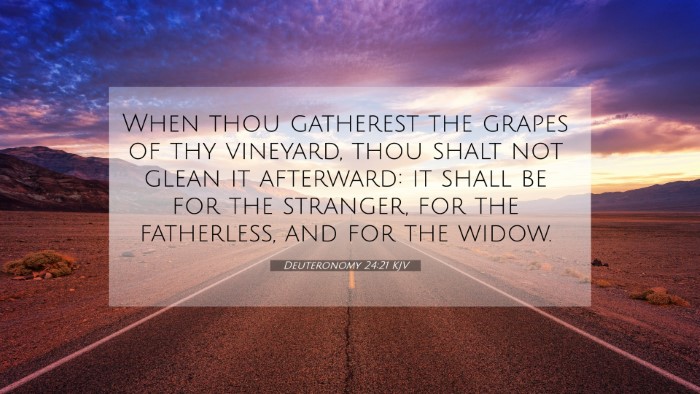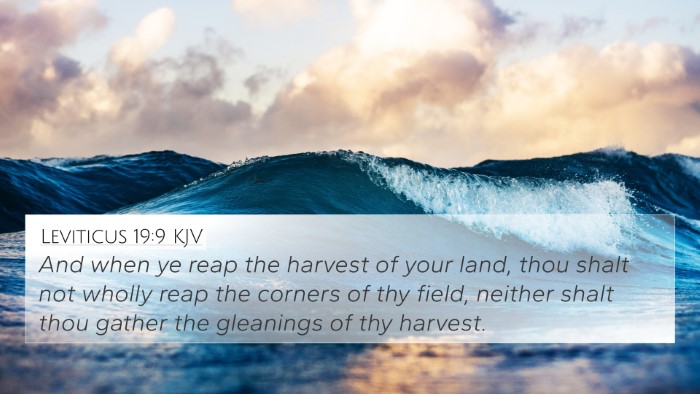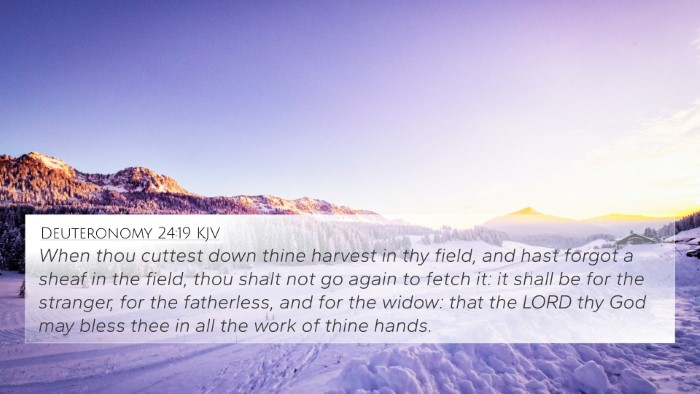Understanding Deuteronomy 24:21
In Deuteronomy 24:21, the verse states:
"When you gather the grapes of your vineyard, you shall not glean it afterward; it shall be for the foreigner, the orphan, and the widow."
This verse is part of the larger context of laws meant to ensure agricultural equity and provide for the vulnerable in society, namely the foreigner, the orphan, and the widow. The command serves both practical and symbolic purposes. Below is a summary based on insights from renowned public domain commentaries.
Commentary Insights
Matthew Henry's Commentary
Matthew Henry emphasizes that this command reflects God's concern for the less fortunate. He notes that the act of leaving the gleanings for others is a demonstration of compassion and generosity. It also enforces the principle of kindness towards those who cannot provide for themselves.
Albert Barnes' Commentary
Albert Barnes highlights that this law aimed to promote social justice and protection for the marginalized. He explains that by allowing the needy to gather leftover grapes, the Israelites were reminded of their history as former slaves, thus encouraging them to act justly and remember the plight of others.
Adam Clarke's Commentary
Adam Clarke points out the biblical principle of not being greedy or taking all for oneself. He elaborates on the idea of providing for the poor and how this command builds a sense of community where those who are blessed are called to share with those who lack.
Thematic Connections and Cross-References
The understanding of Deuteronomy 24:21 can be enriched through various Bible cross-references that cultivate a deeper comprehension of God’s heart towards justice and mercy. Below are relevant verse connections:
- Leviticus 19:9-10: Encourages leaving behind some harvest for the needy.
- Ruth 2:2-3: Demonstrates a practical illustration of gleaning through Ruth’s actions in Boaz’s field.
- Isaiah 58:6-7: Emphasizes fasting that leads to social justice and care for the oppressed.
- Proverbs 31:20: Describes a virtuous woman who opens her hands to the needy.
- James 1:27: Discusses pure religion as caring for orphans and widows.
- Matthew 25:35-40: Jesus identifies with the hungry and needy, equating kindness to Him.
- Galatians 6:10: Advises to do good to all, especially those of the household of faith.
Practical Applications
With such strong implications for social responsibility, Deuteronomy 24:21 calls believers to examine their attitude toward wealth and resources. It urges an active response in:
- Finding ways to support those in need in the community.
- Encouraging generosity that embodies the spirit of this biblical principle.
- Participating in local outreach programs targeting vulnerable populations.
Conclusion
Deuteronomy 24:21 serves as a powerful reminder of God’s expectations for His people regarding social justice and caring for the marginalized. By understanding and implementing the principles found in this verse, we foster a community that reflects God's love and compassion. The cross-references enhance our understanding of biblical ideals for care and justice, calling believers to a more profound commitment to serving others. Engaging with these texts encourages a continuation of the scriptural dialogue that links Old Testament laws with New Testament ethics, creating a holistic view of biblical stewardship.
